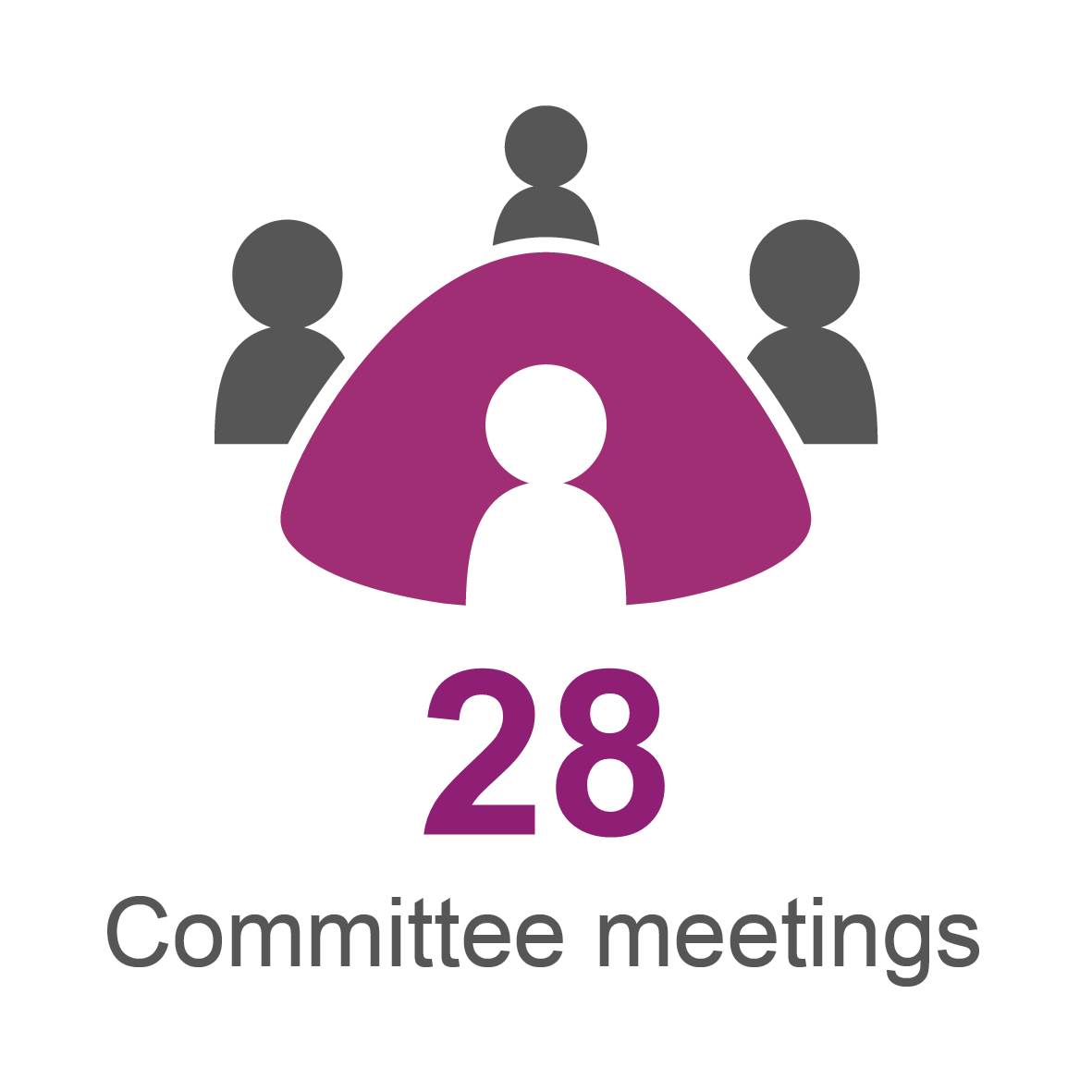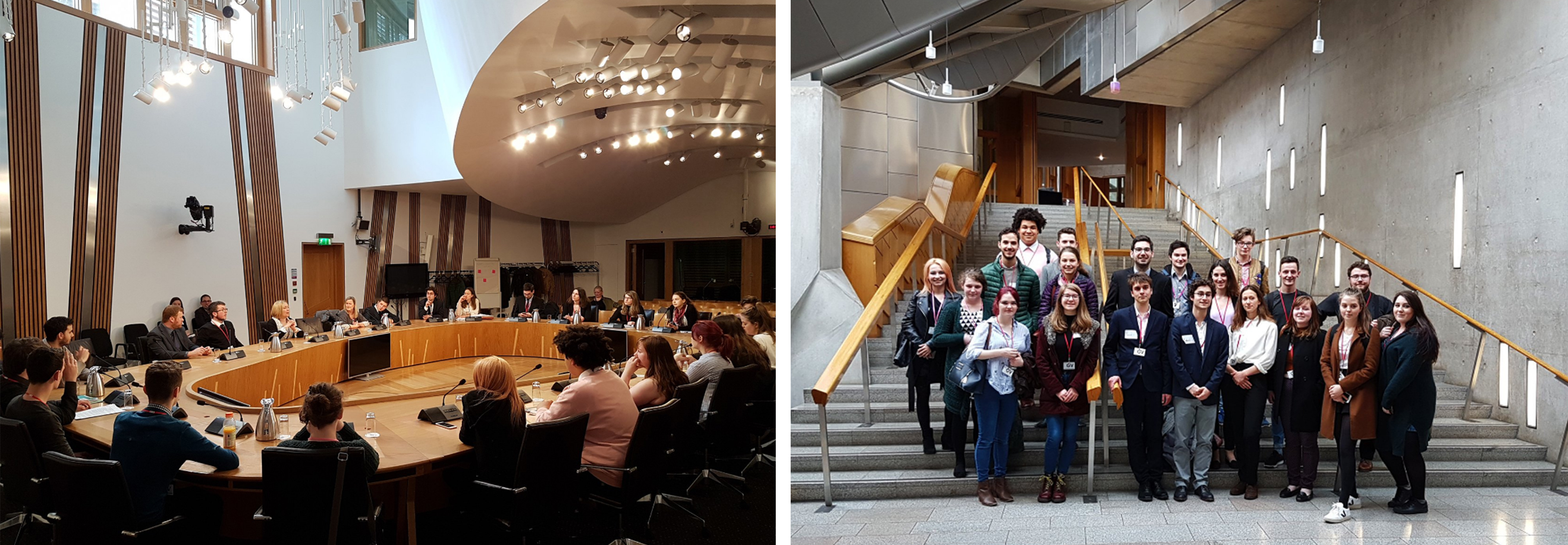Culture, Tourism, Europe and External Relations Committee
Annual Report 2016-17
Introduction
This Report covers the work of the Culture, Tourism, Europe and External Relations Committee (CTEERC) for the Parliamentary year 12 May 2016 to 11 May 2017.
During the reporting period the Committee met 28 times:
2 held wholly in public
1 held wholly in private
25 held partly in private.
Membership changes
Previous Members of the Committee during the reporting year:
Emma Harper (SNP) (from 1 September 2016 until 21 March 2017)
Rachael Hamilton (Con) (from 1 June 2016 until 2 May 2017)
Bruce Crawford (SNP) (from 7 June 2016 until 1 September 2016)
Ash Denham (SNP) (from 7 June 2016 until 1 September 2016)
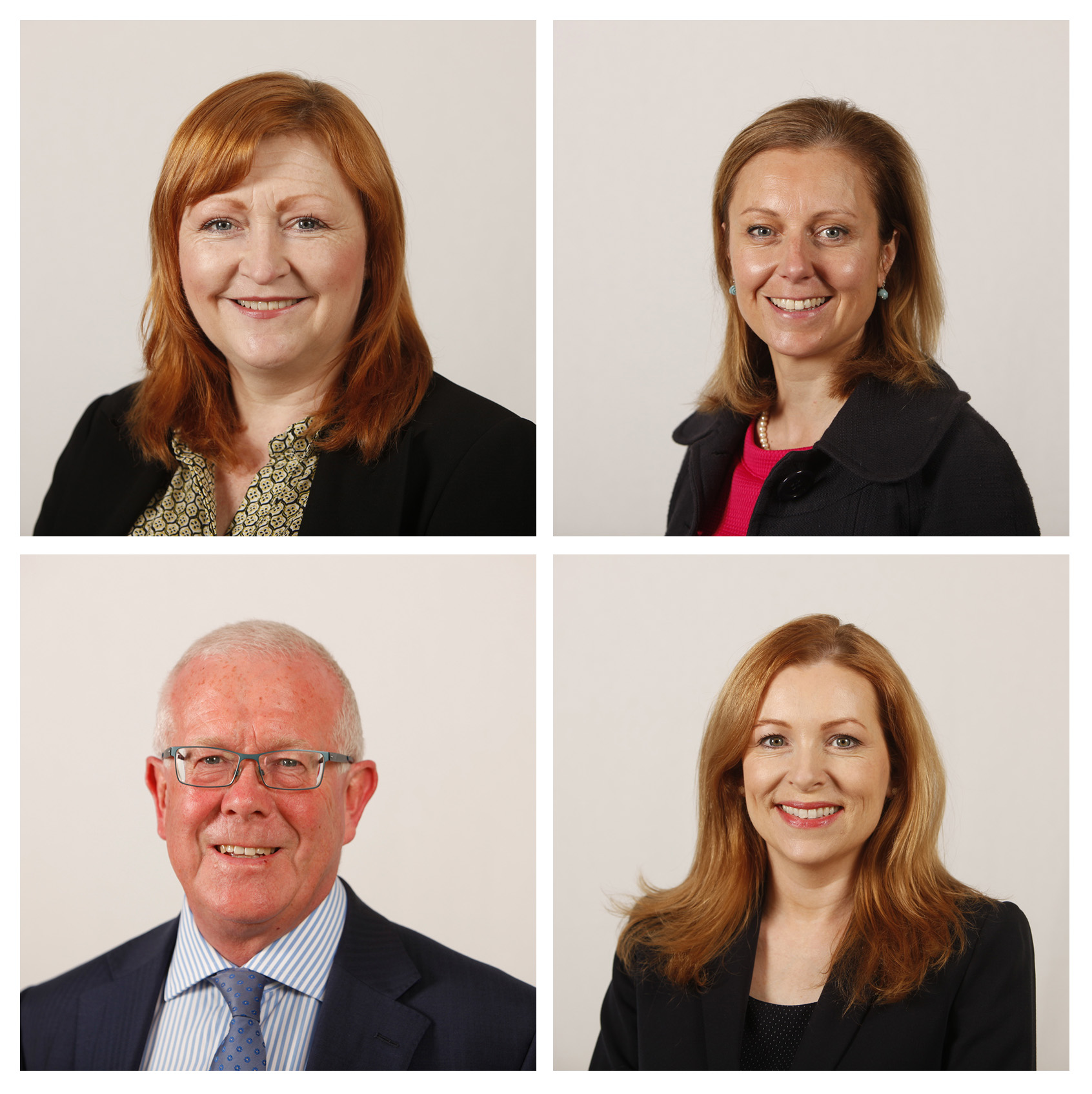 Image © Scottish Parliamentary Corporate Body – 2017. Licensed under the Scottish Parliament Copyright Licence
Image © Scottish Parliamentary Corporate Body – 2017. Licensed under the Scottish Parliament Copyright Licence
The EU referendum and its implications for Scotland
Following the EU referendum in June 2016, the Committee agreed to undertake a wide-ranging inquiry to understand the implications of the vote to leave the EU for Scotland. The inquiry covered the following key areas:
Scotland's future trade relationship with the EU;
Intergovernmental relations and the Scottish Government's role in negotiations;
The impact of leaving the EU for the Scottish budget;
Scotland's future relations with the EU and its Member States;
The rights of EU Nationals in the UK and UK nationals in the EU; and
The domestic process of withdrawing from the EU.
To support the inquiry, the Committee appointed two advisers:
In addition, the Committee commissioned the following research:
Fraser of Allander Institute - The long-term economic implications of Brexit
Dr Eve Hepburn - The options for differentiating the UK's immigration system.
(Left) Graeme Roy, Fraser of Allander, speaks during the launch of the report with (right) Deputy Convener, Lewis MacDonald MSP and Convener, Joan McAlpine MSP Images © Scottish Parliamentary Corporate Body – 2017. Licensed under the Scottish Parliament Copyright Licence
Images © Scottish Parliamentary Corporate Body – 2017. Licensed under the Scottish Parliament Copyright Licence
The Committee published four reports as part of the inquiry:
The EU referendum result and its implications for Scotland: Initial Evidence
The Committee began taking evidence on Brexit in late June of 2016, hearing from the Scottish Government, academics and a range of stakeholders. This evidence was supplemented by a fact-finding visit to Brussels in July, where a cross party delegation of the Committee met with representatives of the business community and the ambassadors to the EU from Norway, Iceland and the Republic of Ireland.
The Committee took evidence from (left-right) the First Minister, Secretary of State for Scotland and from various organisations and individuals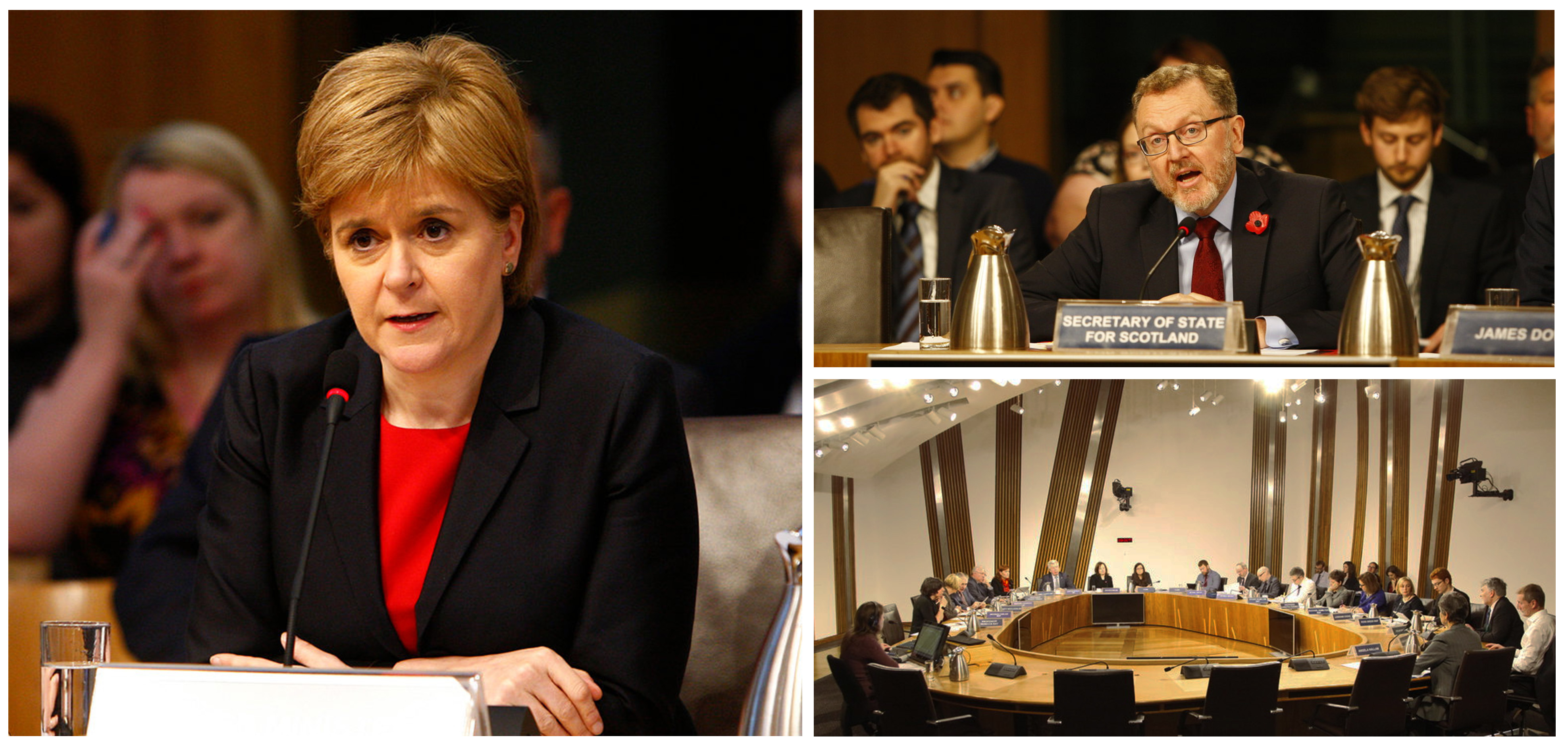 Images © Scottish Parliamentary Corporate Body – 2017. Licensed under the Scottish Parliament Copyright Licence
Images © Scottish Parliamentary Corporate Body – 2017. Licensed under the Scottish Parliament Copyright Licence
The Committee decided to publish its preliminary findings based on the initial evidence heard in order to help inform the general public of the evidence emerging from its scrutiny.
The report made a number of recommendations and called on the UK and Scottish Governments to consider the following:
The importance of continued access to the EU single market
The uncertainty surrounding the rights of EU citizens living and working in Scotland
The role of EU funded programmes in Scotland
The potential impact on specific sectors, particularly the higher education sector.
The report also underlined the importance of engaging with parliamentary committees in the withdrawal process and the need to underpin such arrangements though the Scottish Government's Written Agreement on Intergovernmental Relations.
Brexit: What Scotland thinks
In July 2016 the Committee issued a call for evidence, inviting views on the implications of the EU referendum result for Scotland. In January 2017, the Committee published its second report "Brexit: What Scotland thinks" summarising the 150 plus submissions under the following following policy areas:
justice and home affairs
further and higher education
schools and skills
agriculture, food and fisheries
climate change and the environment
health and sport
equal opportunities and human rights
constitutional matters and the process of withdrawing from the EU.
EU Migration and EU Citizens' Rights
An area of concern to the Committee, and something which had emerged as a strong theme in the previous two reports, was the issue of EU migration and EU citizens' rights. To better understand EU migration to Scotland, the Committee commissioned research from SPICe to examine migration patterns and the socio-economic impact of migration in Scotland. Building on this evidence base, the Committee invited a number of stakeholders and experts on migration and EU citizens' rights to give evidence on 8 and 15 December 2016. The evidence was presented in a report published on 6 February 2017.
Determining Scotland's future relationship with the European Union
The Committee's final report relating to its inquiry into the implications of the EU referendum for Scotland brought together the evidence collected by the Committee on Scotland's future relationship with the EU, focusing primarily on trade. It also considered how the decisions were being, and will be, reached in relation to Scotland's future by examining the structures for intergovernmental decision-making in the UK and the potential impact of the repatriation of powers from the EU on the devolution settlement and Scotland's fiscal arrangements with the UK Government.
The Committee held a series of evidence sessions, examining the impact the UK's withdrawal from the EU might have on the Scottish economy, hearing from academics, industry representatives and Scottish and UK Government Ministers. The Committee explored three alternatives to EU membership, including the European Free Trade Association - European Economic Area, the Swiss bilateral relationship with the EU, and trading under World Trade Organization rules. The report also considered intergovernmental relations between the UK Government and the Scottish Government in relation to the negotiations in advance of Article 50 being triggered; the negotiations during the process of withdrawal; and discussions on future free trade agreements. Finally, the report examined the impact of withdrawal from the EU on the devolution settlement and future funding to replace agricultural and structural funding.
Fact-finding visits
As part of its scrutiny of the EU referendum and its implications for Scotland, the Committee undertook a number of fact-finding visits.
Members visited London on 14 and 15 November 2016 and met with CityUK's Senior Brexit Group, members of the Committee on Exiting the European Union and members of the London Assembly's EU Exit Working Group.
Members visited Brussels on two occasions, firstly on 18-19 July 2016 and then again on 22-24 January 2017. During both visits, members met with MEPs, Ambassadors, EU experts and industry representatives.
The visits helped members to develop their understanding of the issues discussed as part of the Committee's inquiry, to gain valuable intelligence from key decision makers at the EU and UK level and to explore issues of particular concern to specific sectors.
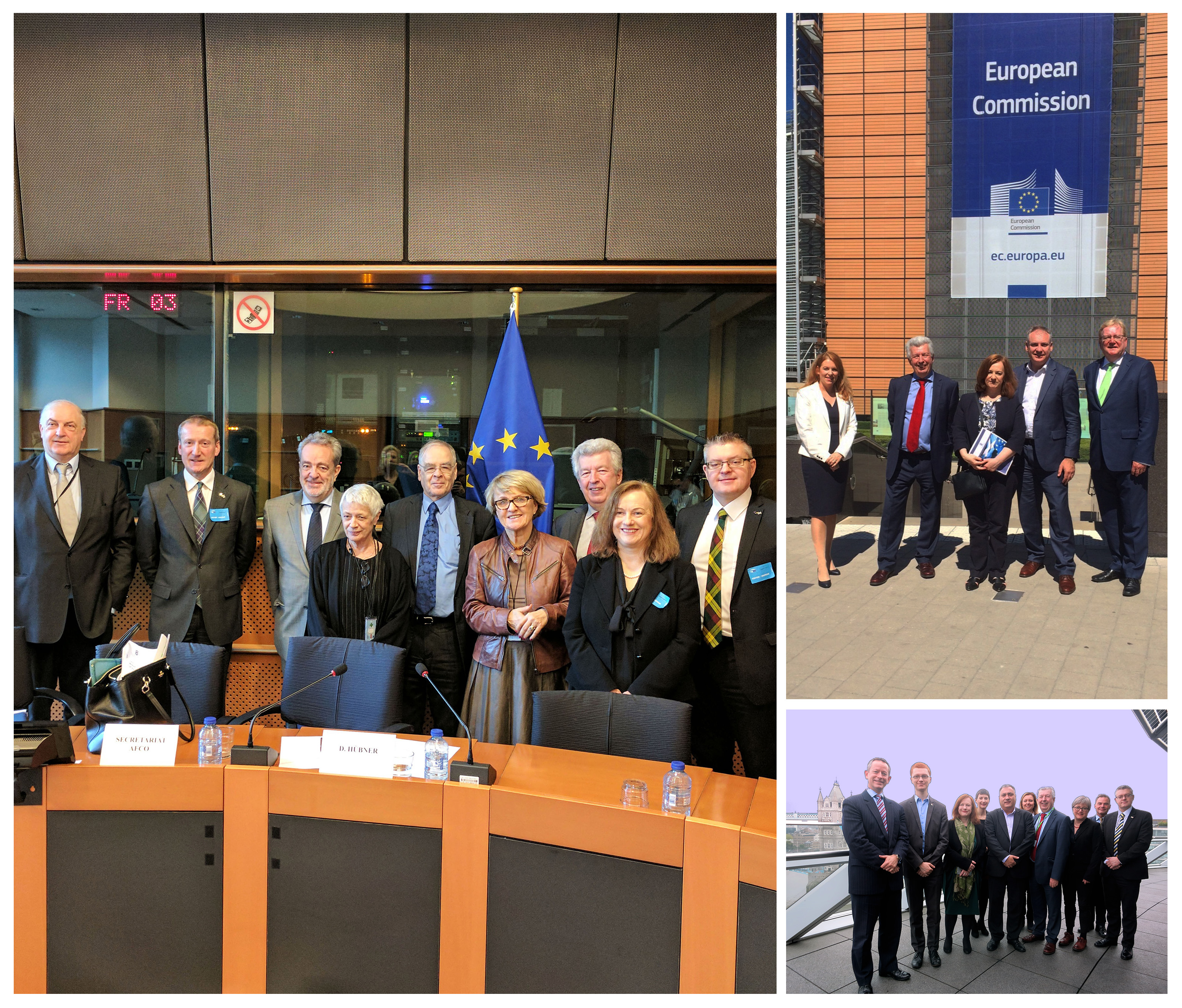
Scottish Government Reports
The Committee continued to monitor a number of EU funding streams and initiatives by considering bi-annual reports produced by the Scottish Government, these included:
Horizon 2020
The Scottish Government’s 1+2 Languages Policy
The Scottish Government’s transposition of EU Directives
European Structural and Investment Funds in Scotland.
Culture
The majority of the Committee's work on culture centred on the renewal of the Draft Royal Charter for the continuance of the BBC, and the potential for further development of the screen sector in Scotland more generally. On 27 September 2016, the Committee heard from a number of stakeholders as well as representatives from the BBC on the renewal of the charter.
To compliment this work and to examine the issue of commissioning policy across public service broadcasters, the Committee heard from the Channel 4 and STV on 20 April 2017.
- The BBC's Director General, Lord Hall of Birkenhead giving evidence at the Committee's meeting on 23 February 2017
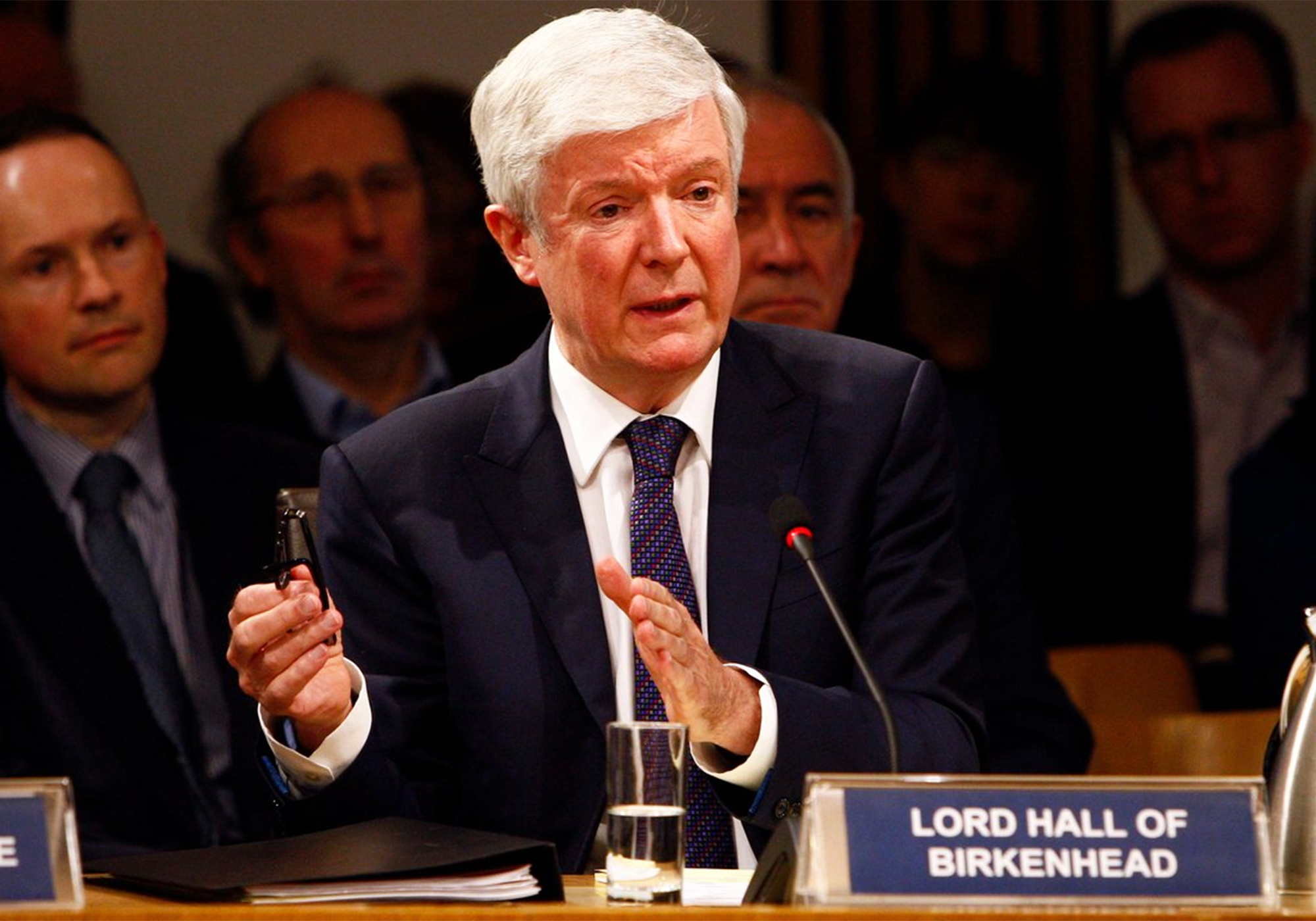 Image © Scottish Parliamentary Corporate Body – 2017. Licensed under the Scottish Parliament Copyright Licence
Image © Scottish Parliamentary Corporate Body – 2017. Licensed under the Scottish Parliament Copyright Licence
Under the new charter agreement, Ofcom will become the BBC's first external regulator and the Committee held an introductory session with representatives from Ofcom to discuss their approach to the development of its operating framework.
On 30 March 2017, the Committee took evidence from members of the Screen Sector Leadership Group (SSLG), which had been established following recommendations made by the Economy, Energy and Tourism Committee in Session 4. The SSLG's report to the Committee, published in January 2017, formed the basis for the Committee's scrutiny in this area which covered a number of concerns regarding the leadership, organisation and funding for the sector as well as the need for a dedicated production facility in Scotland. The Committee wrote to the Scottish Government, Scottish Enterprise and Creative Scotland to ascertain the progress of a new screen unit for Scotland, how productions are supported financially and the progress of a dedicated production facility.
Budget Scrutiny
Due to the compressed timetable for scrutiny of the Scottish Government's draft budget 2017-18, the Committee decided to seek written evidence on the transformative impact that cultural activities could have on people's lives from a number of industry bodies, including:
Creative Scotland
Visit Scotland
Edinburgh International Festival
National Museums Scotland
Scottish Opera
Sistema Scotland
Scottish Library and Information Council.
The written evidence received was used to inform an evidence session held on 22 December 2016, where the Committee heard from Creative Scotland, VisitScotland, and the Cabinet Secretary for Culture, Tourism and External Affairs.
The Committee scrutinised the commitment of European and Structural Investment Funds before withdrawal from the EU by writing to the Cabinet Secretary for Economy, Jobs and Fair Work requesting more information on the progress in committing funds, as well as the risk that the funds are not committed, and are therefore lost, before the UK leaves the EU.
Public Engagement
The Committee held a youth engagement event on 25 April 2017, hearing from representatives from a range of organisations from across Scotland on Scotland's future relationship with the EU. Attendees were invited to discuss their views in groups before presenting their findings to the Committee at a formal meeting
The Committee also welcomed a number of foreign delegations to the Parliament to discuss issues surrounding the UK's withdrawal from the EU, including:
European Secretariat in the Danish Parliament
Latvian delegation - European Affairs Committee
Canadian NATO Parliamentary Association
Brexit rapporteurs to the Dutch Parliament.
To compliment the Committee's inquiry into the EU referendum and its implications for Scotland, the Scottish Parliament Information Centre (SPICe) produced a weekly update covering the UK's exit from the EU. The update has proved very successful, with over 200 subscribers to date, allowing the Committee to engage with new audiences.
Throughout the reporting period, the Committee has tried to engage with a wider audience through its use of social media.
Equalities
The Committee mainstreamed equalities issues throughout the Parliamentary year as part of its ongoing work.
